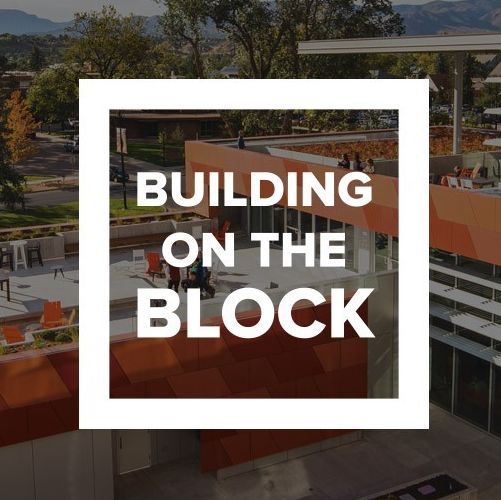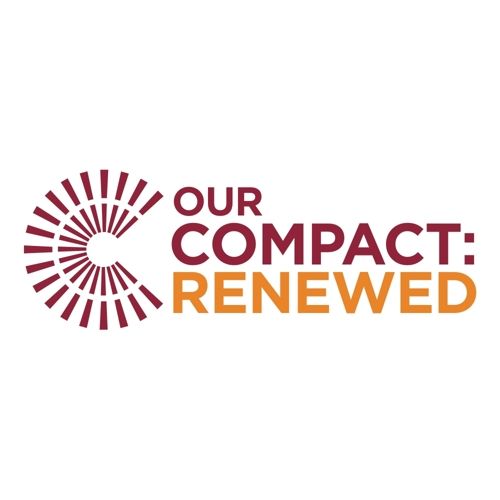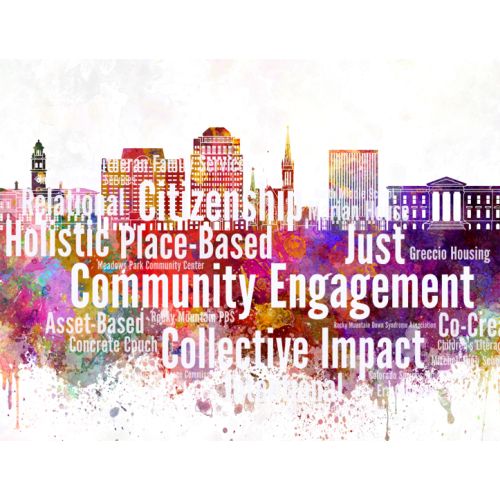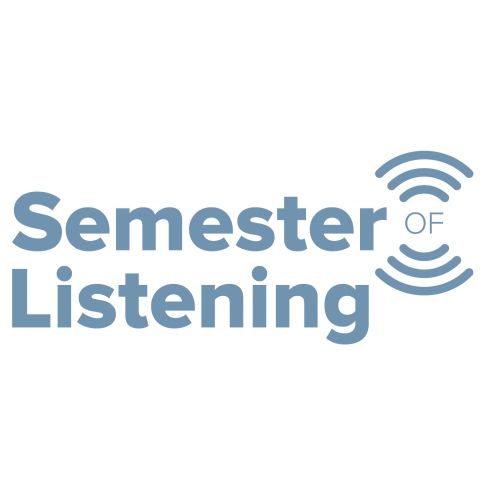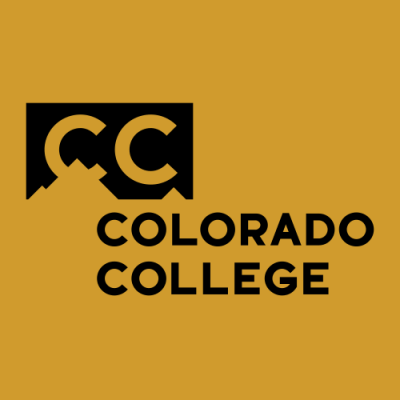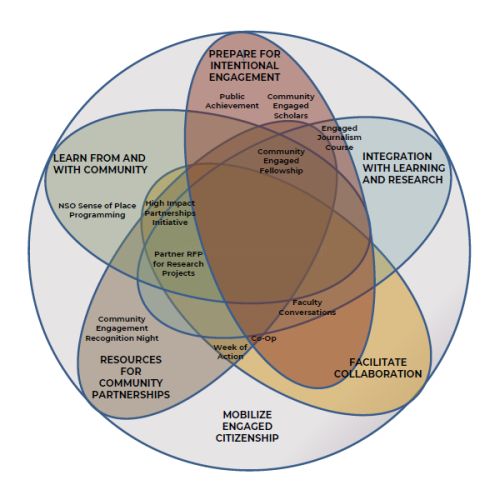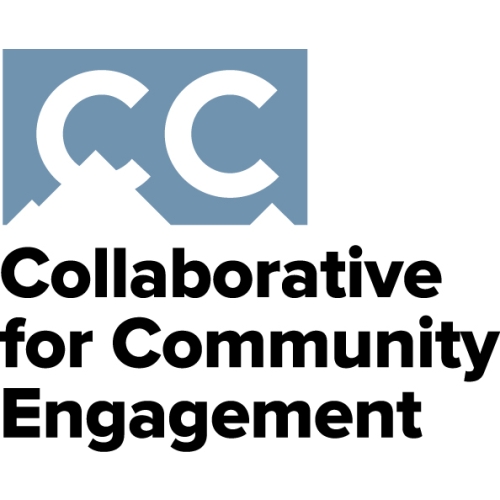
INSTITUTIONAL CONTEXT
- Collaborate with the CCE
- Join the Engaged Faculty Listserv
- Attend Events and Workshops
- Teach a Community-Engaged Learning Course
- Find a Community Partner
- Get Started with Community-Engaged Research
- Apply for Funding
- Faculty Engagement Opportunities
- How Might We Support CEL Teaching? Share Your Ideas Here.
To understand where we should go, we must first understand where we begin. The following narrative of our strengths and weaknesses was crafted from data gathered in interviews with former community-engaged leadership, as well as focus groups of currently engaged students, faculty, staff, and current partners.
We begin with deep roots. CC has a rich history of community engagement, and this legacy means that the college is primed for meaningful community work. Our students and faculty take initiative to engage in the community - evidenced by the pockets of work that exist all over campus. Across a diverse array of departments, offices, and initiatives, people are building relationships with communities beyond the campus. Moreover, our students and faculty are capable of capacity-building and effecting change, bringing strong skillsets and knowledge to public work. Our people - this passion and knowledge - are our greatest asset.
While the sheer variety of initiatives on campus attest to broad interest in community work, this decentralization comes at the cost of coordination and strategy. Engaged projects, initiatives, and coursework can operate independently of one another, leading to a sense of isolation and siloization - ultimately inhibiting our capacity to make a deeper community impact and strengthen student learning. Externally, this lack of coordination weakens the coherency of CC's institutional narrative and identity in the community and leads to an underutilization of college assets. Internally, this lack of centralization and clear communication of resources diminishes our capacity, leaving some campus stakeholders with a desire to engage but without knowledge of how to do so. Lastly, without a strong coordinating body, engaged initiatives often emerge from disparate student or faculty passions - rather than community-driven needs.
Our Block Plan lays a context for and presents unique strengths and challenges to community engagement at CC. The Block Plan allows for immersive, focused community engagement and engaged projects. Yet the short-term nature and rhythm of the block precludes ongoing work and sustained impacts through courses. In and outside of the classroom, the block makes it difficult to build long-term, consistent relationships with community partners. Relatedly, the culture of the block lends itself to engagement that is episodic, as well as a tendency to expect to witness immediate impacts on complex social and environmental issues.
Lastly, our location as a progressive-leaning institution within a conservative-leaning city can present cultural divides and ideological conflicts between CC and Colorado Springs that are both real and perceived. Such differences can inhibit engagement and relationship building, yet provide a rich learning experience when encountered (or deconstructed). Our students also often come from social locations and backgrounds that differ from the communities in which they engage, heightening the need for students to have a strong awareness of their positionality as individuals and CC students, and dynamics of privilege and power.
Our opportunities emerge from this context:
- harnessing passions toward shared goals to deepen collective impact
- understanding, adapting, extending, and building on the block to better integrate community engagement into CC's educational mission
- taking a place-based approach that centers opportunities for learning within our unique location and surrounding community
- providing more opportunities to equip our students with the skills and knowledge needed to be intentional changemakers toward a more just, equitable, sustainable world

